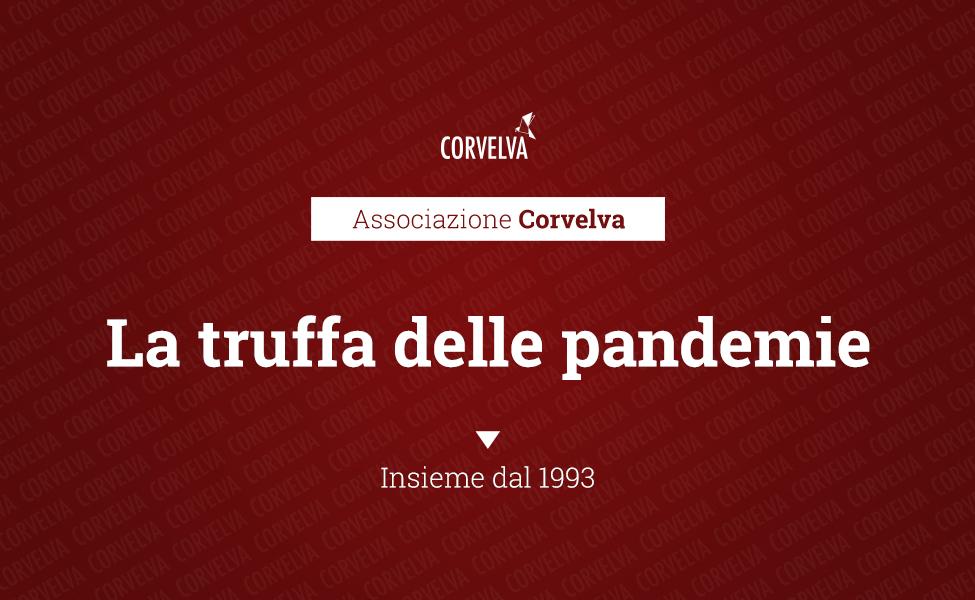Medicines and clinical studies: the Tamiflu scandal and Roche's silence

La Roche can still keep secret the studies supporting Tamiflu, which resulted in an unnecessary expenditure of 2,62 billion euros only in 2009. Casting a shadow over the entire drug market
Il Tamiflu it is not just a unnecessary drug passed off as miraculous, a fake antidote for a fake pandemic (bird flu in 2006 and three years after the "swine") and an investment by the governments of the world which proved to be a colossal waste - only in 2009 were packages bought for 2,64 billion euros - to make you happy Roche, the Swiss multinational that produces it. The case of the anti-viral that has risen to the sad honors of the news is also a magnifying glass on a huge problem: the non-transparency of clinical studies, those that serve the industry to understand if a drug is safe for our health or not, if brings benefits and what are its side effects. Most of this data is kept hidden, I'm not from public domain, even drug regulatory agencies cannot have them. It is the company that decides which information to disclose and which is better to keep silent (i.e. unfavorable results).
Ben Goldacre, English doctor, author of the best seller Bad Pharma, in which it documents all the deceptions and manipulations used by pharmaceutical companies to demonstrate the validity of the drug, is the promoter of the AllTrials campaign for public registration of clinical trials. A step forward has been taken. On April 2, the European Parliament approved the regulation on the registration of clinical trials. For it to become law, the approval of the European Council of Ministers is required, which is expected on 14 April. This means that we will have an Ema (European Medicines Agency) database that will collect all the scientific tests (rtc: randomized controller trial) conducted in the European Union and the related results. Although the new regulation will only concern studies carried out starting from 2014. Therefore, of the drugs that came out on the market 15 years ago - in practice almost all those that we have available - the documentation as we should forget it.
Another success: in January the AllTrials campaign launched the portal ClinicalStudyDataRequest.com made especially for researchers who want to access clinical trial data at the individual patient level. GSK, Roche, Boeringer Ingelheim, Sanofi and Viiv Healthcare are the pharmaceutical companies that have so far agreed to share the data. Hopefully the rest of them will do the same sooner or later.
Speaking of Tamiflu, Goldacre revealed the background of the story in a article released on Guardian April 10. I summarize some passages that are worth knowing.
A Japanese pediatrician, Keiji Hayashi, leaves a comment on the group's online site Cochrane (14 thousand independent doctors and researchers who defend the transparency of scientific data in the medical and pharmaceutical field) in which he explains that the alleged usefulness of Tamiflu is based on a summary of ten clinical studies developed by the same industry that produces it, Roche. But of these ten tests, only two are available in the scientific literature. Of the other eight, the only information available on the method used is attributable to the home-made summary. And that's not credible enough.
Cochrane asks Roche to send him the missing data. Roche accepts as long as the Cochrane reviews, the group's online magazine, sign an informal agreement that forces her to report nothing to readers. The terms of the deal are not questionable. Tom Jefferson, the pulmonology manager of the organization, asks Roche why there is a need to sign a contract but is not answered.
In 2009 Roche sent seven documents, a dozen pages each, with extracts from ten previously summarized clinical trials. But it is still too little: Cochrane's requests continue to remain disregarded.
Meanwhile, what is evident? That the sample of human guinea pigs that participated in clinical trials is not representative enough. And in "double-blind" experiments - when neither the doctor nor the patient should know if they have taken the placebo or the drug - the placebo and real pills have different colors. And even stranger is that the diagnosis of pneumonia is made personally by patients without even a medical examination to ascertain it. Finally, the "third phase" - the one determining the validity or otherwise of the drug - is not published. [But the drug entered the market the same, bought and used]
Last year Roche finally provided Cochrane with the requested information. Result: again, there is insufficient data to demonstrate that Tamiflu could have reduced the death toll. At most he could have reduced the symptoms for a few hours but with a high cost in terms of side effects. For example, if a million people take Tamiflu, 45 experience nausea, 31 headaches and 11 states of anxiety. Roche denies this conclusion but without explaining why: a case?

